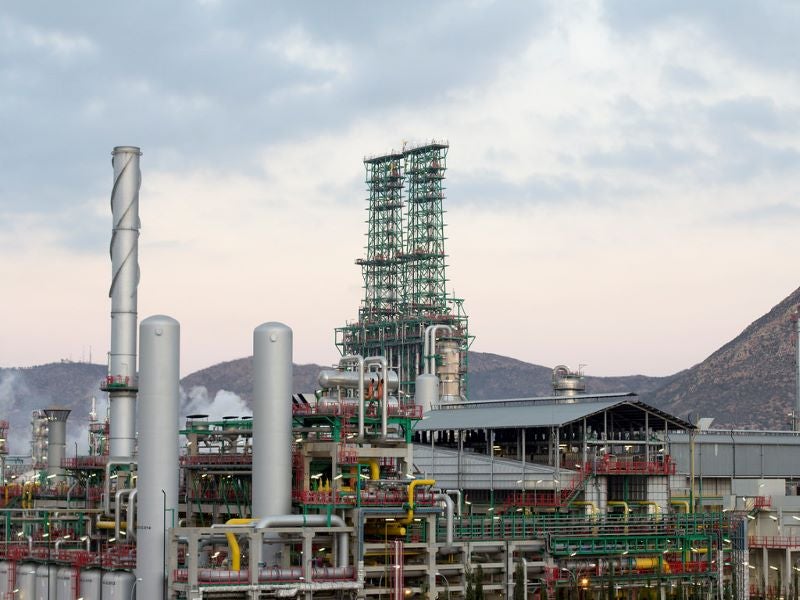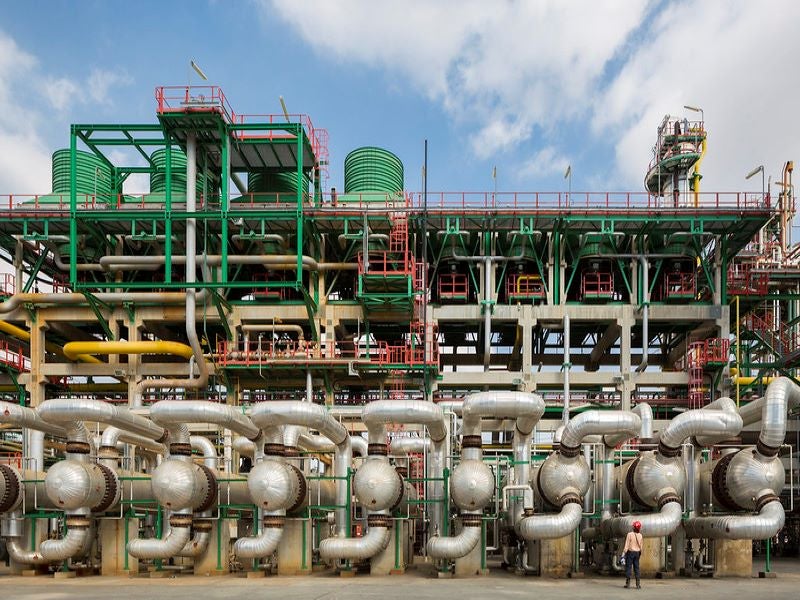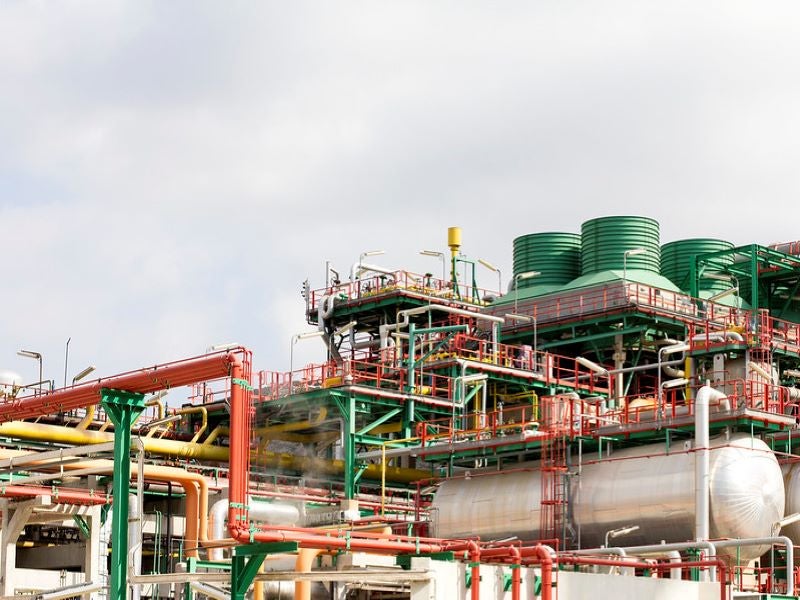The Cartagena refinery, owned and operated by Repsol, is one of the biggest oil refineries in Spain. The company took a decision to build the country’s first advanced biofuels plant at the Cartagena refinery, in October 2020.
The current crude distillation capacity of the refinery is 220,000 barrels per day (bpd) with a conversion ratio of 76%. The lubricant production capacity of the refinery is approximately 155,000 tonnes (t) a year.
The Cartagena refinery has been operational since January 1950. Its initial distillation capacity was 1.2 million tonnes per annum (Mtpa) which was expanded to 10.7Mtpa in 1971.
The refinery capacity was increased from 100,000bpd to 220,000bpd with a £2.4bn ($4.7bn) expansion project that came on stream at the end of 2011. The Cartagena refinery expansion was claimed to be the biggest industrial investment in Spain at that time.
Involving as many as 30 new processing units, the expansion project was intended to enhance the heavy crude refining capacity and the overall conversion capacity and to improve the operational efficiency and refining margin at the Cartagena facility.
Location
The refinery is located in Cartagena in the Murcia region in south-eastern Spain. It receives crude supply at the Escombreras dock in Cartagena.
Cartagena biofuels plant
Repsol reached a final investment decision (FID) to build Spain’s first advanced biofuels plant at the Cartagena refinery in October 2020. The estimated investment in the facility is approximately £170.5m ($222.8m).
Expected to start operations in the first half of 2023, the annual production capacity of the biofuels plant will be approximately 250,000t of hydro bio-diesel, bio-jet fuel, bio naphtha, and bio-propane.
The biofuels plant will also include a hydrogen plant and a hydrotreatment unit.
The biofuels plant will use recycled materials as feedstock which will help in reducing approximately 900,000t of CO2 emissions a year.
The Cartagena biofuels plant is in line with Repsol’s target to become a net-zero emissions company by 2050.
Processing facilities at the Cartagena refinery
The Cartagena refinery houses various processing modules including the atmospheric distillation units, vacuum distillation, and conversion units, a hydrocracking plant, a coker plant, a desulphurisation unit, apart from the other auxiliary plants.
The refinery produces a range of products including petrol, diesel, LPG (butane gas), naphtha, coke, lubricant bases, and asphalt.
The crude and the hydrocracker units along with the hydrogen plants at the refinery underwent modifications to improve energy efficiency in 2017, while the ejectors and condensers of the vacuum column of the Vacuum 5 Unit were modified in 2016.
ILBOC
The Iberian Lube Base Oils Company (ILBOC), a joint venture between Repsol (30%) and South Korea’s SK Lubricants (70%), owns a lube base oil production plant adjacent to the Cartagena refinery.
Built with an estimated investment of £196m ($315.7m), the plant started operations in October 2014. The feedstock for the lube base oil plant is supplied by Repsol’s Cartagena and Tarragona refineries.
The annual production capacity of Group II and III base lubricants is approximately 630,000t. The base oils are used in the production of advanced lubricants.





